College told Governing Board in August it had 20 students on a waiting list for fall semester with 11 of them vets; But College is still waiting for VA approval so vets can enroll; only 4 of 9 non-vets enrolled
 On August 9 of this year, Yavapai Community College asked the District Governing Board to convene a special session and devote it exclusively to obtaining Board approval for charging fees amounting to $14,388 per student for the newly resurrected private pilot program. The Board complied and held a one-hour special session.
On August 9 of this year, Yavapai Community College asked the District Governing Board to convene a special session and devote it exclusively to obtaining Board approval for charging fees amounting to $14,388 per student for the newly resurrected private pilot program. The Board complied and held a one-hour special session.
Dean John Morgan gave a presentation during the special session to the Governing Board in which he outlined the fee structure of the new private pilot course. (The College charges $525 per credit hour.) During the presentation, he told the Governing Board that he was in close contact with 20 people who were on the College private pilot training wait list. (See Board minutes directly below to verify.)
“Currently 20 people have indicated that they would like to enroll in the program. 11 of those people are veterans, and 9 are not, so there is more `civilian’ demand for the program.”
It was quite a surprise to some that fall registration for the program fell far short of of the 20 persons on the waiting list in view of Dean Morgan’s enthusiastic presentation about the list to the Board. In fact, only four students enrolled this fall for the program.
When asked for a comment earlier this month about the low enrollment for the private pilot program, the College explained as follows:
“The College is still waiting for the VA approval of the flight course itself, which means our veterans are waiting to get in until then. They are telling us they are behind (the VA). Right now, only civilians can get in until the VA gives the final approval for the course.”
Dean Morgan noted that he anticipated 20 students enrolling each semester with enrollment eventually reaching a total of 60.
The Blog does not recall that Dean Morgan suggested any anticipated issue about VA approval delaying fall enrollment.
You may view clips of Dean Morgan’s comments to the Governing Board regarding the wait list by clicking here. You may view the entire presentation by Dean Morgan to the Governing Board by clicking here.

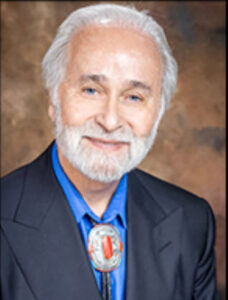
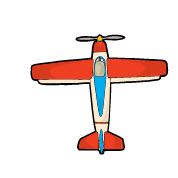 A special meeting of the Yavapai Community College Governing Board was held August 9 in an effort to save the collapsing aviation program at Yavapai Community College. The Governing Board was asked to approve the tuition for the program.
A special meeting of the Yavapai Community College Governing Board was held August 9 in an effort to save the collapsing aviation program at Yavapai Community College. The Governing Board was asked to approve the tuition for the program.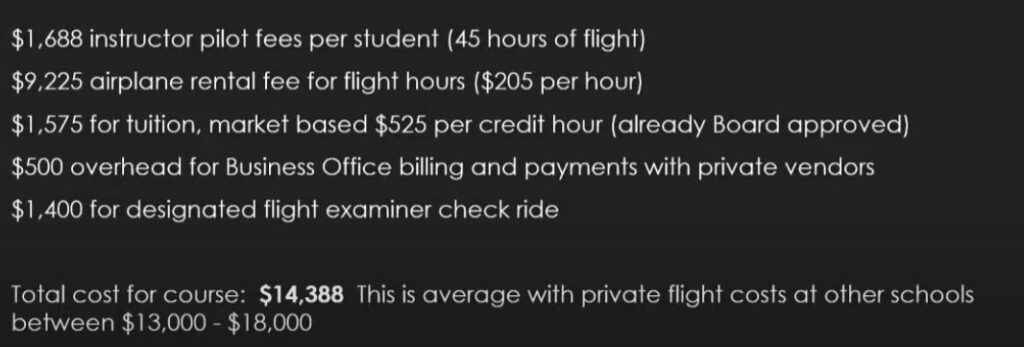
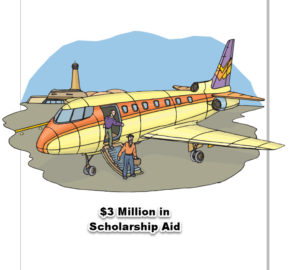 Boeing announced March 7, 2019 that it plans to establish a $3 million permanent endowment for scholarships at Embry-Riddle Aeronautical University
Boeing announced March 7, 2019 that it plans to establish a $3 million permanent endowment for scholarships at Embry-Riddle Aeronautical University 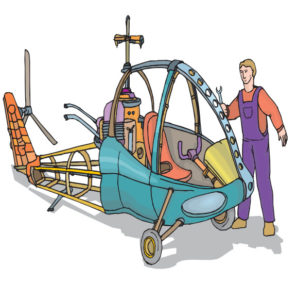
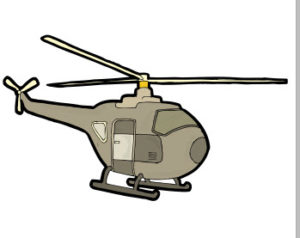 Yavapai Community College has an aviation program it operates with partners Guidance Aviation and North-Aire, both corporations located at the Prescott, Arizona airport. Despite a lawsuit that has dragged on for almost six years and a huge loss of tuition when the Veterans Administration changed its funding rules, there have been no detailed reports provided by President Penelope Wills about the program’s problems and progress toward resolving issues such as attendance, drop-out rate, student recruitment, in addition to the status of the six-year whistle blower lawsuit.
Yavapai Community College has an aviation program it operates with partners Guidance Aviation and North-Aire, both corporations located at the Prescott, Arizona airport. Despite a lawsuit that has dragged on for almost six years and a huge loss of tuition when the Veterans Administration changed its funding rules, there have been no detailed reports provided by President Penelope Wills about the program’s problems and progress toward resolving issues such as attendance, drop-out rate, student recruitment, in addition to the status of the six-year whistle blower lawsuit.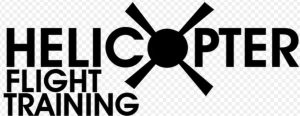 This regulatory development specifically impacts the Helicopter Operations and Airplane Operations concentrations of the Associate of Applied Science in Aviation Technology (AVT) degree at Yavapai College. The private pilot applicable courses had to be removed from the two flight concentrations.
This regulatory development specifically impacts the Helicopter Operations and Airplane Operations concentrations of the Associate of Applied Science in Aviation Technology (AVT) degree at Yavapai College. The private pilot applicable courses had to be removed from the two flight concentrations. The assignment to Judge Snow may encourage the College to reach a settlement.
The assignment to Judge Snow may encourage the College to reach a settlement.